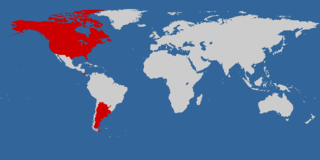For anyone who might have doubted the racist nature of America's War on Drugs...William Bennett, who served as the "drug czar" for the George Bush Sr. administration from 1989-1990 is refusing to apologize for racist remarks he made on a syndicated radio talk show. On Wednesday, Bennett told a caller: "If you wanted to reduce crime, you could - if that were your sole purpose - you could abort every black baby in this country and your crime rate would go down. That would be an impossibly ridiculous and morally reprehensible thing to do, but your crime rate would go down."
CNN reports that as of last night, Bennett was defending his remarks. Bennett also served Ronald Reagan's administration as the chairman of the National Endowment for the Humanities from 1981-1985, and as the secretary of education from 1985-1988.
Yes, these are the kind of people who have made their living directing policy that imprisons people for ingesting government unapproved substances.
CNN reports that as of last night, Bennett was defending his remarks. Bennett also served Ronald Reagan's administration as the chairman of the National Endowment for the Humanities from 1981-1985, and as the secretary of education from 1985-1988.
Yes, these are the kind of people who have made their living directing policy that imprisons people for ingesting government unapproved substances.




